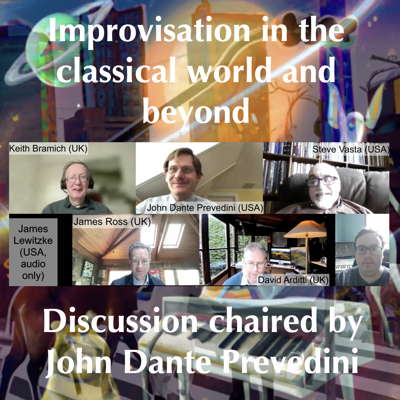- Anna Bolena
- New World Symphony
- religion
- Trinidad and Tobago
- IBS Classical
- Norberto Gomes
- Douglas O'Connell
- Munich Agreement
 DISCUSSION: John Dante Prevedini leads a discussion about Improvisation in the classical world and beyond, including contributions from David Arditti, James Lewitzke, James Ross and Steve Vasta.
DISCUSSION: John Dante Prevedini leads a discussion about Improvisation in the classical world and beyond, including contributions from David Arditti, James Lewitzke, James Ross and Steve Vasta.
 SPONSORED: CD Spotlight. Well Realized - Varda Kotler and Israel Kastoriano - recommended by Geoff Pearce.
SPONSORED: CD Spotlight. Well Realized - Varda Kotler and Israel Kastoriano - recommended by Geoff Pearce.
All sponsored features >>
Mikhail Nosyrev
Soviet composer and conductor Mikhail Iosifovich Nosyrev was born in Leningrad on 28 May 1924. He studied at the Leningrad Conservatory during World War II, then became a soloist at the Leningrad Radio Orchestra.
He narrowly escaped the death penalty for counter-revolutionary activities when his diary was discovered during a search of his home in 1943. Instead, he had to serve ten years in the Vorkuta Corrective Labour Camp in Komi, and was then exiled to Syktyvkar, where he worked as conductor of the State Theatre. Later, he was director of the opera and ballet theatre of Voronezh (1958-81).
Shostakovich supported his 1967 membership of the Union of Soviet Composers.
Mikhail Nosyrev died in Voronezh on 28 May 1981, his fifty-seventh birthday, leaving four symphonies, violin, piano and cello concertos, three ballets, four string quartets and much other chamber music.
He was eventually completely forgiven by the USSR Supreme Court, but not until seven years after he had died.

